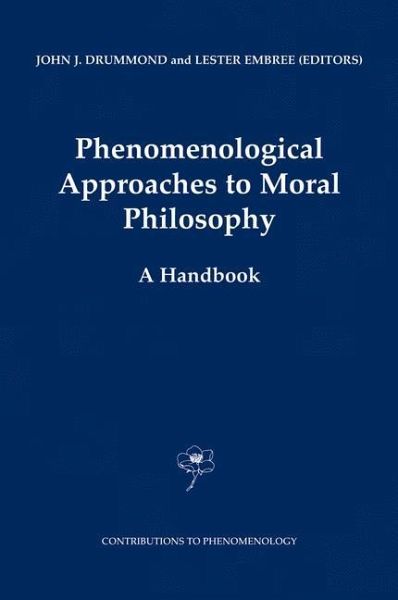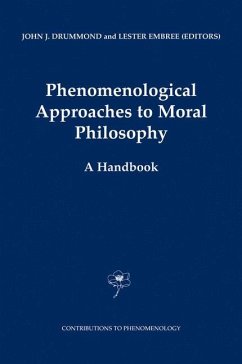
Phenomenological Approaches to Moral Philosophy
A Handbook
Herausgegeben: Drummond, J.J.; Embree, Lester
Versandkostenfrei!
Versandfertig in 6-10 Tagen
211,99 €
inkl. MwSt.

PAYBACK Punkte
106 °P sammeln!
Against the background of the recent revival of ethics, this handbook aims to show the great fertility of the phenomenological tradition for the study of ethics and moral philosophy by collecting a set of papers on the contributions to ethical thought by major phenomenological thinkers. Twenty-one chapters in the book are articles by experts who explore the thought of the major ethical thinkers in the first two generations of the phenomenological tradition and direct the reader toward the most relevant primary and secondary materials. The final three chapters of the book sketch more recent dev...
Against the background of the recent revival of ethics, this handbook aims to show the great fertility of the phenomenological tradition for the study of ethics and moral philosophy by collecting a set of papers on the contributions to ethical thought by major phenomenological thinkers. Twenty-one chapters in the book are articles by experts who explore the thought of the major ethical thinkers in the first two generations of the phenomenological tradition and direct the reader toward the most relevant primary and secondary materials. The final three chapters of the book sketch more recent developments in various parts of the world, and the first three chapters investigate the relations between phenomenology and the dominant normative approaches in contemporary moral philosophy.














